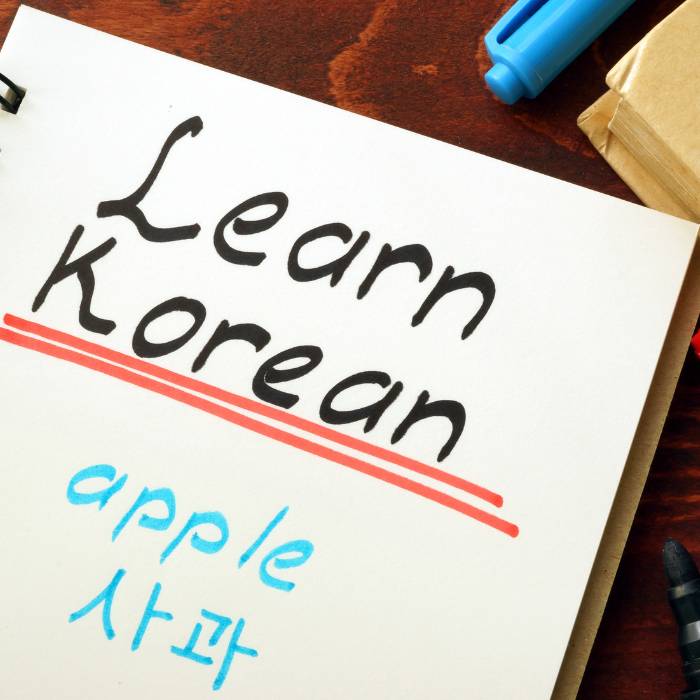Are you learning Korean and wondering how to certify your language skills? The TOPIK (Test of Proficiency in Korean) is the answer! This comprehensive guide explains everything foreign learners need to know about this official Korean language certification exam.
What is TOPIK?
TOPIK is the official Korean language proficiency test administered by the National Institute for International Education (NIIED) under the South Korean Ministry of Education. The test evaluates the Korean language abilities of non-native speakers and overseas Koreans.
Key Facts About TOPIK:
- Official recognition: Government-certified qualification recognized worldwide
- Administration: Managed by NIIED (National Institute for International Education)
- Testing locations: Available in South Korea and many countries internationally
- Testing frequency: Multiple times per year (dates vary by location)

Why Take the TOPIK Exam?
The TOPIK certification serves multiple practical purposes:
- Study in Korea: Required for admission to Korean universities and colleges
- Employment opportunities: Many Korean companies and public institutions require TOPIK scores
- Immigration benefits: Helps with visa applications and permanent residency
- Government scholarships: Required for most Korean government scholarship programs
- Professional development: Proves your Korean language proficiency on your resume
- Personal achievement: Provides clear milestones in your Korean learning journey
TOPIK Test Structure and Levels
The TOPIK exam is divided into two main tests:
TOPIK I (Beginner Level)
| Format | 100-minute test with no breaks |
| Sections | Listening: 40 questions (40 minutes) / Reading: 40 questions (60 minutes) |
| Scoring | Total of 200 points possible |
| Passing scores | Level 1: 80+ points / Level 2: 140+ points |
TOPIK II (Intermediate-Advanced Level)
| Format | 180 minutes total (including break time) |
| Sections | Session 1: Listening (50 questions, 60 minutes) and Writing (4 questions, 50 minutes) Session 2: Reading (50 questions, 70 minutes) |
| Scoring | Total of 300 points possible |
| Passing scores | Level 3: 120+ points / Level 4: 150+ points / Level 5: 190+ points / Level 6: 230+ points |
What Skills Are Tested?
Listening
- Understanding daily conversations
- Comprehending academic discussions
- Following instructions and announcements
- Interpreting tone and implicit meaning (higher levels)
Reading
- Reading signs, notices, and advertisements
- Comprehending articles, documents, and instructions
- Understanding complex texts and literary works (higher levels)
- Analyzing academic content (higher levels)
Writing (TOPIK II only)
- Sentence completion
- Short paragraph writing
- Essay writing
- Expressing opinions and arguments (higher levels)
Test Formats
TOPIK is currently administered in two formats:
- PBT (Paper-Based Test): The traditional format where you mark answers on an OMR sheet and write responses on paper. This is still the most common format worldwide.
- IBT (Internet-Based Test): A computer-based format that is gradually being implemented. This format may become more common in the future.

Who Can Take the TOPIK?
Anyone who is not a native Korean speaker can take the TOPIK exam, regardless of:
- Age
- Educational background
- Nationality
- Learning method (self-study or formal education)
Registration Process
- Check test dates: Visit the official TOPIK website for upcoming exam schedules
- Registration period: Usually opens 1-2 months before the test date
- Online application: Register through the TOPIK website during the designated period
- Fee payment: Pay the examination fee (varies by location and level)
- Confirmation: Receive test admission ticket with your designated test center
Test Day Preparation
- Required documents: Test admission ticket and valid ID (passport for foreigners)
- Materials: Bring 2B pencils, eraser, and black pen (for writing section)
- Timing: Arrive at least 30 minutes before the test starts
- Prohibited items: Electronic devices, dictionaries, and reference materials
After the Test
- Results announcement: Usually available about 3-4 weeks after the test date
- Score checking: Check your results on the TOPIK website
- Certificate issuance: Download your certificate online or receive it by mail
- Score validity: TOPIK scores are valid for 2 years from the result announcement date
Tips for TOPIK Success
- Understand the format: Familiarize yourself with question types and time limits
- Practice with past papers: Official past TOPIK papers are available online
- Time management: Practice completing sections within the allotted time
- Listening practice: Train your ear with diverse Korean audio materials
- Reading speed: Work on improving your reading speed for the reading section
- Writing practice: For TOPIK II, practice writing responses within the word limits
Common FAQs About TOPIK
Q: How often is the TOPIK test offered? A: In Korea, the test is typically offered 6 times per year. Internationally, it’s usually offered 2-5 times per year, depending on the country.
Q: How long are TOPIK scores valid? A: TOPIK scores are valid for 2 years from the date of result announcement.
Q: Can I take both TOPIK I and TOPIK II on the same day? A: No, you must choose either TOPIK I or TOPIK II for each test date.
Q: What level of TOPIK do I need for university admission in Korea? A: Most universities require at least TOPIK Level 3 or 4 for admission, though requirements vary by institution and program.
Q: Is there a minimum waiting period before retaking the TOPIK? A: No, you can take the TOPIK as many times as you want, whenever it’s offered.
Conclusion
The TOPIK exam is an essential milestone for anyone serious about Korean language proficiency. Whether you’re planning to study, work, or live in Korea, a good TOPIK score opens many doors. Start your preparation early, practice consistently, and use the resources available to maximize your chances of success.
For the most up-to-date information on test dates, registration procedures, and fees, always refer to the official TOPIK website.
Good luck with your TOPIK preparation journey!
I found it especially helpful how you highlighted the practical benefits of the TOPIK exam—not just for studying, but for work and immigration too. It’s clear that earning a good score can really open up opportunities beyond the classroom.
I appreciate how clearly this post outlines why TOPIK matters beyond just academics. I’m currently preparing for it to boost my job prospects in Korea, and this helped clarify how employers view the certification.
This guide clarified a lot of confusion I had around the different TOPIK levels. Knowing the specific point breakdown and sections is super useful when planning a study strategy.